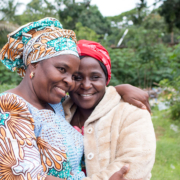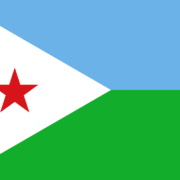East Africa
Eritrea
Eritrea is a country in the Horn of Africa with a rich blend of ethnic cultures. It is known for its stunning Red Sea coastline.
East Africa
Eritrea is a country in the Horn of Africa with a rich blend of ethnic cultures. It is known for its stunning Red Sea coastline.
Population: 3,728,000
Main Religion: Islam – forming a slight majority
Christians: 1,739,000
Eritrea is a country in the Horn of Africa, located on the Red Sea. In 1993, after a war of independence that lasted nearly three decades, Eritrea became a sovereign country. During the long struggle, Eritreans managed to forge a common national consciousness, but, with peace established, they faced the task of overcoming their ethnic and religious differences in order to raise the country from poverty made worse by years of drought, neglect, and war. Eritrea’s capital and largest city is Asmara. (Brittanica)
Eritrea is a militarized authoritarian state that has not held any national election since independence from Ethiopia in 1993. The People’s Front for Democracy and Justice (PFDJ), headed by President Isaias Afwerki, is the sole political party. Arbitrary detention is commonplace, and citizens are required to perform national service, often for their entire working lives. The government shut down all independent media in 2001.
Despite the November 2022 peace agreement ending the war between the Tigrayan People’s Liberation Front (TPLF) and the Ethiopian government, Eritrean troops (allegedly supporting the Ethiopian government), continued to occupy parts of the Tigray region in northern Ethiopia during 2023. Eritrean forces have been accused of perpetrating mass atrocities in the region.
Since 2022, Eritrean authorities have engaged in a nationwide forced conscription campaign to send more troops to Tigray, with security forces deployed to track down those attempting to escape being drafted. A February report by Human Rights Watch (HRW) noted that Eritrean authorities had attempted to coerce individuals who were allegedly hiding from conscription by detaining their family members. (Freedom House)
Eritrea is on the US Commission for International Religious Freedom list of countries of particular concern. The 2024 report stated that religious freedom conditions in Eritrea remained extremely poor throughout 2023. The government continued to systematically detain individuals for their religious beliefs, including minors. The government did not register any new religious organizations, and individuals practicing faiths other than the four officially recognized by the government (Eritrean Orthodox, Catholic, Lutheran1, and Muslim), faced intimidation and prosecution. Without formal registration, authorities deny faith groups their freedom of religion or belief (FoRB) and prohibit them from building or owning houses of worship or engaging in religious practices such as praying in groups. Members of officially recognized religions also faced restrictions and government backlash for practicing their faith.
Conditions for religious prisoners of conscience in Eritrea include physical abuse, sexual violence, and torture as systematic and ongoing practices. Officials reportedly often denied prisoners medical treatment, and many have died due to severe human rights abuses. Additionally, prison authorities pressured arrested individuals to renounce their faith and banned praying aloud, singing, preaching, and possessing religious books.
Minorities like the Jehovah’s Witnesses also experienced specific targeting according to the report. Apart from keeping 36 members of the community imprisoned in unsanitary and decrepit facilities, the government also punished families of those who evade military service by evicting them from their homes and denying them food and other necessities, especially for women and children.
In March 2023, the government released nine Christian prisoners, most of whom served sentences of more than nine years in places like Mai Serwa and Assab prisons. In August, the government released 13 unidentified prisoners that had each completed a 10-year sentence. In April, founder and leader of Meserete Kristos Church Pastor Tesfay Seyoum2 died in Mai Serwa prison five days after authorities took him to Dembe Sembe hospital in Asmara for treatment. His body remained unburied for 10 days, in violation of his religious requirements.
The government also arrested 44 Orthodox monks in April, all vocal supporters of Abune Antonios, the Eritrean Church patriarch who died in 2022. Authorities later released them. In February, an Orthodox monk and supporter of Antonios, Yeneta Israel, died violently in his monastery in what authorities declared a suicide. The state did not pursue further investigation. The Eritrean government continues to hold more than 500 Christians in prison due to their religious identity, including 103 students arrested in the capital Asmara during a singing and recording session for social media.”

 Djibouti
Djibouti